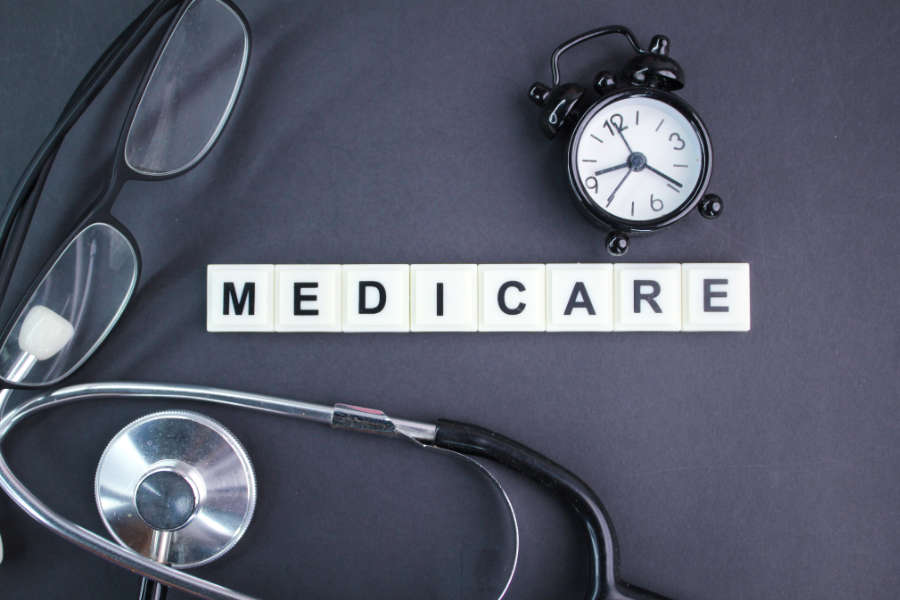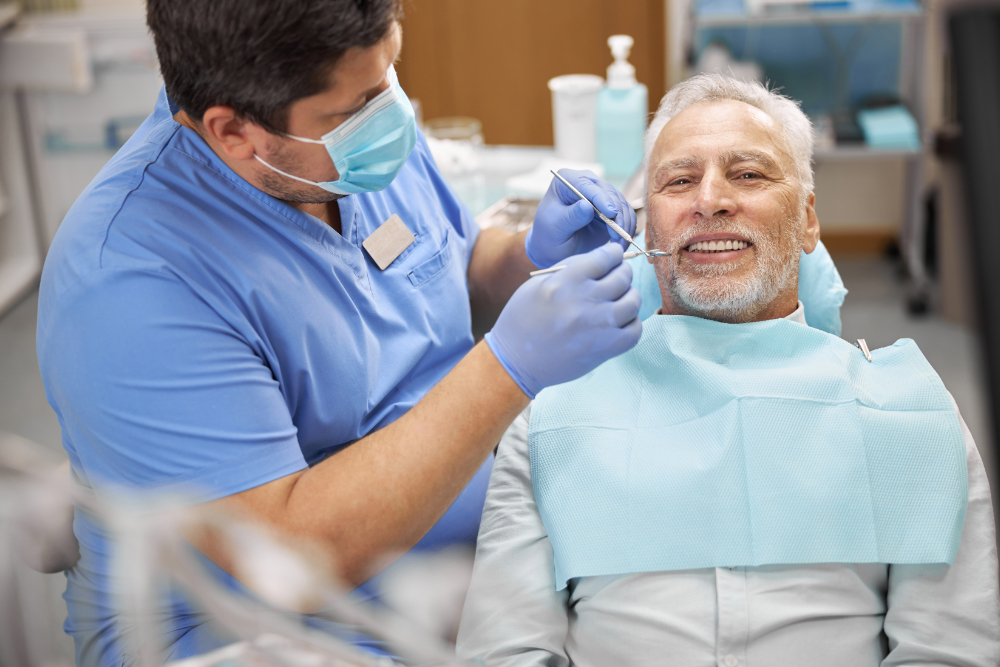Medicare and dental coverage are crucial for ensuring holistic healthcare for seniors. It’s important to note that traditional Medicare plans typically do not include dental services unless they are deemed necessary for other covered treatments.
Medicare Info Pro can guide you through various options available to obtain dental coverage, such as Medicare Advantage Plans or supplemental insurance. As we age, the importance of dental health for seniors becomes increasingly evident.
Not only does oral health impact overall well-being and quality of life, but it also has significant implications on one’s physical health.
When considering Medicare plans with dental coverage, it’s crucial to weigh the costs involved, including out-of-pocket expenses, premiums, and potential subsidies or assistance programs that may be available.
Key Takeaways:
- Traditional Medicare Coverage: Standard Medicare (Parts A and B) does not typically cover dental services unless they are part of other covered treatments.
- Options for Dental Coverage: Consider Medicare Advantage Plans (Part C) or supplemental insurance for dental benefits.
- Importance of Dental Health: Highlight the significance of dental care for older adults’ overall health and quality of life.
- Cost Considerations: Understand potential expenses with different Medicare plans, including out-of-pocket costs and available subsidies or assistance programs.
- Tips for Choosing the Right Plan: When opting for a Medicare plan with dental coverage, consider factors like cost, coverage limits, network restrictions, and insurance providers’ reputations.
Do not forget, for more information on Medicare plans and dental coverage, visit Medicare Info Pro to make an informed decision.

Understanding Traditional Medicare and Dental Coverage Services
Some Medicare Parts A and B typically do not cover routine dental services for seniors.
Any dental care that is preventive or maintenance in nature, such as cleanings, fillings, extractions, or dentures, is usually not included in standard Medicare coverage.
What Medicare Parts A and B Cover
With traditional Medicare, coverage is mainly focused on medical services rather than dental care.
Medicare Parts A and B primarily cover hospital visits, doctor’s appointments, and medical procedures, leaving out routine dental treatments that many older adults may require for their oral health.
Exceptional Cases Where Medicare Covers Dental
With some exceptional cases, Medicare may cover certain dental services if they are integral to other medical procedures.
For example, if a senior requires dental treatment before undergoing a covered surgery, Medicare may include dental services as part of the overall treatment plan.
Medicare and Dental Coverage is a crucial topic for seniors to understand, as oral health directly impacts overall well-being.
For more information on navigating dental coverage options under Medicare, visit Medicare Info Pro.

Medicare Advantage Plans and Dental Coverage
Even though traditional Medicare (Parts A and B) typically does not cover dental services unless they are integral to other covered procedures, there are options available for dental coverage through Medicare Advantage Plans (Part C) or other supplemental insurance options that can include dental benefits.
What Medicare Advantage (Part C) Offers
Offers a variety of benefits beyond what original Medicare covers, including dental care.
Medicare Advantage Plans often provide coverage for routine dental services such as cleanings, X-rays, and fillings, which can be important for overall health and well-being.
How to Choose a Medicare Advantage Plan with Dental Benefits
One important factor to consider when selecting a Medicare Advantage Plan with dental benefits is to carefully review the coverage options available.
Look for plans that offer comprehensive dental coverage, including preventive care and major procedures, to ensure you have access to the care you need without unexpected out-of-pocket costs.
Medicare Advantage Plans can vary in terms of cost, coverage limits, and network restrictions, so it’s crucial to compare different options to find the plan that best suits your dental care needs.
It’s important to prioritize your oral health as part of your overall well-being, and choosing the right Medicare plan with dental coverage can help you maintain a healthy smile in your golden years.
Would you like any changes?
Additional Dental Coverage Options for Medicare Beneficiaries
All Medicare and Dental Coverage: A Closer Look at additional dental coverage options for Medicare beneficiaries reveals that Medigap Policies can offer some coverage for dental care.
With traditional Medicare typically not covering routine dental services, Medigap policies can help bridge the gap by offering some assistance with dental costs.
Medigap Policies and Dental Care
An imperative aspect of Medigap policies is their ability to provide coverage for certain dental services that traditional Medicare does not cover.
While the scope of coverage may vary depending on the specific Medigap plan, beneficiaries can potentially receive assistance with routine dental check-ups, cleanings, and other preventive care services.
Standalone Dental Insurance Plans
Coverage for dental care under standalone dental insurance plans is another option for Medicare beneficiaries looking to supplement their dental coverage.
These plans can offer more comprehensive coverage for a range of dental services, including restorative treatments such as fillings, crowns, and dentures.
However, it’s important to carefully review the details of each plan to ensure it meets individual dental health needs.

The Importance of Dental Health for Seniors
Common Dental Issues Faced by Older Adults
Unlike other age groups, seniors are more prone to dental issues due to factors like age-related changes in their mouths, medications that affect oral health, and the cumulative effects of years of wear and tear.
Dental problems such as tooth decay, gum disease, and tooth loss can significantly impact the quality of life for older adults.
The Link Between Oral Health and General Well-Being
Issues with oral health can have far-reaching effects on seniors’ overall well-being.
Poor dental hygiene has been linked to various health issues, including heart disease, diabetes, and even dementia.
Maintaining good oral health not only improves quality of life but can also help prevent more serious health complications in the future.
Linking oral health with general well-being emphasizes the importance of regular dental check-ups and proper oral care for seniors.
By addressing dental issues promptly, older adults can improve their overall health outcomes and enjoy a better quality of life in their golden years.
Evaluating the Costs of Dental Care with Medicare
Many individuals may not realize that traditional Medicare (Parts A and B) typically does not cover routine dental services, leading to potential out-of-pocket expenses for seniors.
Estimating these costs is crucial in planning for dental care under Medicare.
Estimating Out-of-Pocket Dental Expenses
Any dental procedures not considered integral to other covered services by Medicare will likely result in out-of-pocket expenses for beneficiaries.
These costs can add up quickly, making it imperative to budget and plan accordingly for dental care needs.
Understanding Premiums, Deductibles, and Co-Pays for Dental
Co-pays for dental services can vary depending on the Medicare plan selected, with some plans offering comprehensive coverage while others may require higher out-of-pocket costs.
Understanding the premiums, deductibles, and co-pays associated with dental care is key in choosing the right Medicare plan for one’s needs.
With Medicare Info Pro, seniors can get personalized guidance on selecting a Medicare plan that includes dental coverage, ensuring comprehensive and affordable care for their oral health needs.

Tips for Maximizing Your Dental Coverage Under Medicare
Despite the limitations of traditional Medicare when it comes to dental coverage, there are ways to ensure you make the most of your benefits.
Exploring Medicare Advantage Plans or other supplemental insurance options that include dental benefits, you can enhance your access to necessary dental care.
- Navigating Dental Plans and Provider Networks
- Strategies to Reduce Dental Care Costs with Medicare
Navigating Dental Plans and Provider Networks
Navigating the various dental plans and provider networks available under Medicare can be overwhelming.
It’s imperative to carefully review the coverage options, including restrictions on networks and coverage limits, to find a plan that best suits your needs and budget.
Strategies to Reduce Dental Care Costs with Medicare
Dental care costs can quickly add up, but there are strategies to help alleviate the financial burden.
Consider preventive care to avoid expensive treatments, look for plans with lower out-of-pocket expenses, and explore any available subsidies or assistance programs to help cover dental costs efficiently.
Any decision regarding dental coverage under Medicare should be made with careful consideration and a thorough understanding of the options available.
Medicare Info Pro is here to help you navigate the complexities of Medicare and dental coverage to ensure you get the care you need.
Final Words
As a reminder, understanding the ins and outs of Medicare and Dental Coverage is necessary for seniors looking to maintain their oral health.
While traditional Medicare may not cover dental services, exploring options like Medicare Advantage Plans can provide much-needed dental benefits.
Consider the importance of dental health for overall well-being and carefully weigh the cost considerations when selecting the right plan.
For more information and guidance on Medicare plans and dental coverage, visit Medicare Info Pro.
FAQ
Q: What does traditional Medicare cover regarding dental care?
A: Medicare typically does not cover standalone dental services unless they are crucial to other covered procedures.
Q: How can one obtain dental coverage under Medicare?
A: Dental coverage can be acquired through Medicare Advantage Plans (Part C) or supplemental insurance options that include dental benefits.
Q: Why is dental health important for seniors?
A: Dental care is crucial for older adults as oral health impacts overall well-being and quality of life.
Q: What are the potential costs associated with dental care under Medicare?
A: Costs vary depending on the Medicare plan, including out-of-pocket expenses, premiums, and available subsidies or assistance programs.
Q: How can one choose the right Medicare plan with dental coverage?
A: When dicking out a Medicare plan, consider factors such as cost, coverage limits, network restrictions, and the reputation of insurance providers.
For more information about Medicare and Dental Coverage, visit Medicare Info Pro for guidance and assistance.

